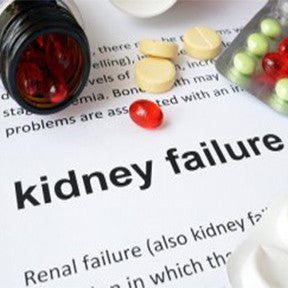
Mar 17 , 2017
6 Comments
Save Your Kidneys from Diabetes: Get Aware
If statistics are to be believed, 30 percent of patients with Type 1 (juvenile onset) and up to 40 percent of those with Type 2 (adult onset) diabetes eventually acquire kidney disease. The disease can be termed as one of these- Diabetic kidney disease, chronic kidney disease, kidney disease of diabetes, or diabetic nephropathy.

Understanding kidney functioning under ideal conditions:
Each kidney is supplied with blood through the renal artery. The renal artery splits into numerous capillaries all around the kidney. These tiny blood vessels cluster together on the exterior to form filtration units known as glomeruli (singular: glomerulus). Each glomerulus leads into a ‘collecting tubule’ and this entire structure is what is referred to as the ‘nephron’.

A glomerulus is structurally designed as a ‘filter’ that lets the waste products like chemicals, salts, as well as excess water to drain out from the blood into the collecting tubule, while retaining the blood cells and essential proteins such as albumin in the bloodstream.
A single kidney constitutes approximately a million nephrons.
How prolonged diabetes may cause kidney failure?
Hyperglycemia or raised blood glucose level occurs in people with diabetes which can eventually lead to a rise in the level of certain chemicals within the kidney. As a result, proteins in the glomeruli get crosslinked and create a ‘scar’, hindering the process of filtration. The unwanted chemicals left out in the glomeruli due to impaired filtration, tend to make the structure even more 'leaky', allowing even more proteins, especially albumin, to leak into the urine.
The condition worsens when the ‘scar’ gets replaced with kidney tissue, as this makes them even more inefficient in their job of filtering the blood. The body retains more water and salt than it should, leading to problems like weight gain, swelling and high blood pressure. The gradual 'failing' of kidneys may progress to what is known as end-stage kidney failure.

Signs to look out for
- When the concentration of albumin in the urine is between 30 and 300 mg per day, the condition is known as microalbuminuria, and this is usually the first indication of the development of diabetic kidney disease.
- Proteinuria: When the amount of albumin that leaks into the urine exceeds 300 mg per day, the condition becomes irreversible. Proteinuria usually marks the phase of gradual decline in kidney function towards end-stage kidney failure.

For Type 1 diabetics
Microalbuminuria or proteinuria rarely occur at the time of diagnosis. Only a handful of diabetics develop microalbuminuria that progresses to proteinuria and eventually kidney failure.
For Type 2 diabetics
About 12 in 100 people have microalbuminuria and 2 in 100 have proteinuria at the time of diagnosis as most people get themselves tested late.
Advanced kidney failure requires treatment with dialysis or a kidney transplant.

Prevention is better than cure
A good control of blood glucose levels and blood pressure is the best way to beat this malignancy. Reducing the risk of diabetic nephropathy, or at least delay its onset, can be done in a number of ways:
- Avoiding non-steroidal anti-inflammatory drugs (NSAIDS).
- Treating urinary tract infections promptly with antibiotics.
- Consuming plenty of non-alcoholic fluids, especially water.
- Avoiding medical treatments that stress the kidneys, such as X-rays requiring the injection of contrast dyes.
- Getting regularly tested to ensure the health of your kidneys.
- Controlling blood glucose levels and blood pressure with BGR34. BGR34 is an acronym for B: Blood, G: Glucose, R: Regulator, 34: 34 vital phytoconstituent extracts and derivatives according to healing principles of Ayurveda. It works by converting proinsulin to insulin thereby increasing the amount of active functional insulin units, and also plays a cardioprotective role.clinically approved drug against diabetes.






6 Comments
Availability of Neeri KFT at Lucknow. COD if available
I’m a CKD 5 patient. No diabetic age 50.
In order to live a happy and diseases free life one should do regular exercise and eat proepr food which is free from fat .
A good control of blood glucose levels and blood pressure is the best way to beat this epidemic disease..Very informative .
Today diabetes has become one of the largest epidemic in the world. It can damage your eyes, heart , lungs and kidneys too. This disease very harmful for your kidneys. To get rid from this everyone should follow strict diet plan and do exercise in a regular basis.
Very informative (y). Thanks for sharing such information .Keep It Up !!!!